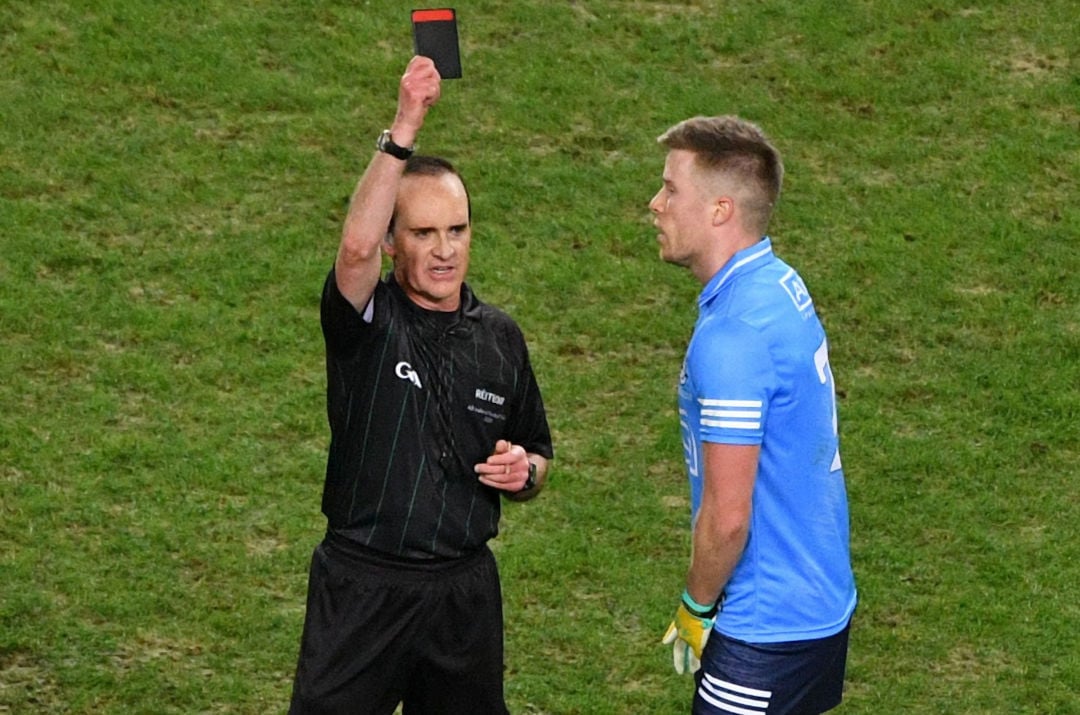stanthevan
UTC Legend
What happens if the keeper gets a blue card?

This is how it works in Gaelic football in article above.What happens if the keeper gets a blue card?
Exactly, given they can't implement the current 2 card system consistently or fairly, I fail to see how a third card will improve things.I know this sounds crazy but couldn't they just try applying the laws as they exist?
He goes in the Bin !!!What happens if the keeper gets a blue card?
Not so sure, somewhere between a red and a blue for me, maybe a purple.Not talking about the Billing one, that was a clear red.
black cards ???? never be allowedIn Gaelic football they have yellow, red and black cards.
GAA Black Cards
The black card is a fairly recent addition to GAA sports and how it has been used has developed over the years. Originally, the black card was a soft red where a player had to leave the game but the team did not go down a man. The coach could substitute the player who received the caution.
Now, a black card mirrors the sin bin system popularised by rugby union games. Anyone who receives a black card in GAA events must spend ten minutes on the sideline. This gives the receiving side a disadvantage as they have to play with 14 men on the field instead of the usual 15.
The rule came about after an increasing number of cynical fouls reared their ugly head into hurling and Gaelic football. Cynical fouls are not new to the sporting world, and soccer fans will know all about them. If you have been watching soccer, players would take out the opposition to stop a dangerous attack before it materialised into a goal-scoring chance. These terrible fouls ruin the flow of a game and they often involve little or no attempt to win the ball. However, soccer officials are yet to fully address this issue whereas, GAA sports now have the black card.
Although they introduced the black card into Gaelic sports in 2014, it has not been as effective as we would like. The black card has disappeared from hurling but remains in effect for Gaelic football. If enforced correctly, it will help improve the quality of GAA matches for years to come.

What Does a GAA Black Card Mean? | Novibet Blog
GAA Black cards are the answer to cynical fouls ruining the sport. Any player who receives a black card spends 10 minutes in the sin bin.www.novibet.ie
From the Athletic.Prompted by another thread mentioning that Neto has been booked several times for dissent (aka “ the Premier League’s gobbiest goalie”)
What happens if a goalkeeper gets a blue card?
So could you bring on a sub keeper for the ten mins without using up a substitution?From the Athletic.
The FA's grassroots guide to sin bins states that goalkeepers are covered under the same law as other players and can be sin-binned. The guide says: “Like when a goalkeeper is sent off, any other player must go in goal but the team must remain with 10 players.
Hard to believe that he outranks Pickford but the stats are there. Neto 4, Pickford 3. As team captain, I suppose Neto has the right to get out there and question calls. Not sure if Pickford is captain. Also, how many were for yapping and how many were for time wasting.Prompted by another thread mentioning that Neto has been booked several times for dissent (aka “ the Premier League’s gobbiest goalie”)
Reading that I think the keeper has to go straight to the sin bin and an outfield player goes in goal.So could you bring on a sub keeper for the ten mins without using up a substitution?
